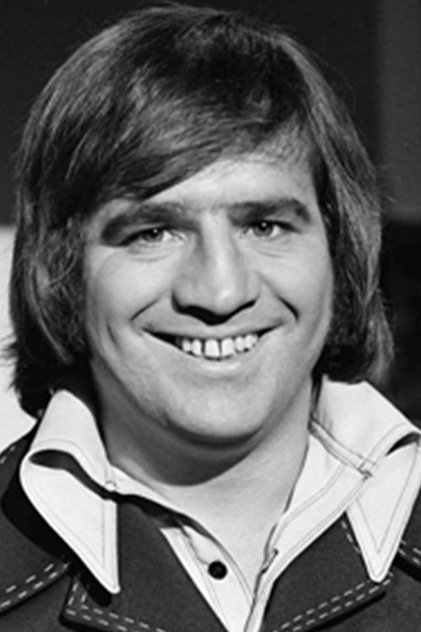
Joe Dolan
Joseph Francis Robert Dolan (16 October 1939 – 26 December 2007) was an Irish entertainer, recording artist, and pop singer. Chiefly known in Ireland for his association with showbands and for his innovative style and high pitched singing voice, he had a wide appeal with many international fans. His energetic and charismatic stage performances influenced his long standing advertising slogan: "There's no show like the Joe show”. The only Irish singer to reach number one in the 1960s, 1970s, 1980s, and 1990s, Dolan was a persistent presence in the music charts in Ireland and overseas. Dolan was born at the County Hospital, now known as the Midland Regional Hospital, Mullingar, County Westmeath on 16 October 1939, the youngest of nine children in a Roman Catholic family. He was orphaned at a young age – his father, a bicycle shop proprietor, died when Joe was ten; his mother when he was nineteen. He sang in school, and his mother had encouraged him to take up the piano. He made his first stage appearance at a talent show held in a marquee on the Fair Green in his native Mullingar. Dolan's voice was high with a comprehensive range without the use of falsetto and he made comprehensive use of a technique known as melisma. Vocal ranges such as this were not common in the 1960s and 1970s but were later made popular by artists such as Mariah Carey, Stevie Wonder and Whitney Houston, among others. The Irish chat show legend Gay Byrne famously described Dolan’s voice as “butter mixed with honey”. In 1958, as well as securing his first (and last) "real" job as a compositor in the local Westmeath Examiner newspaper, Dolan got his first guitar. After learning some skills on the instrument, he and his saxophone-playing brother Ben started to play in local bands. They soon formed a band of their own – The Drifters. Not long afterward, the band was renamed Joe Dolan and the Drifters and finally Joe Dolan and His Drifters to avoid legal action from the American band of the same name. The Irish musical landscape in the 1960s was dominated by the showbands. The first single "The Answer to Everything", (previously released as a B side by Del Shannon) was released in September 1964, reaching number 4 in the Irish charts. Dolan and his band were managed by Seamus Casey. In the summer of 1968, however, some of the band left, with Dolan and Casey citing "musical differences" as the reason, although in the official biography by Ronan Casey (Seamus Casey's son) further elaboration includes references to unhappiness about financial issues. Dolan's first US tour was in 1965 and followed an offer, which he refused, to play in Las Vegas. Instead, he decided to play a whistle-stop tour of Irish-American venues in places such as Chicago, New York and Boston. An added benefit to this string of engagements was the opportunity to hear American music which hadn't yet been played in the UK and Ireland. The first song gleaned in this fashion was the Jim Reeves song, (That's When I see the Blue in Your) Pretty Brown Eyes which Dolan released on the Pye label in 1966. ... Source: Article "Joe Dolan" from Wikipedia in English, licensed under CC-BY-SA 3.0.
- Title : Joe Dolan
- Popularity : 0.287
- Known For : Acting
- Birthday : 1939-10-16
- Place of Birth : Mullingar, County Westmeath, Ireland
- Homepage : https://joedolan.com/
- Also Known As : Francis Robert Dolan



